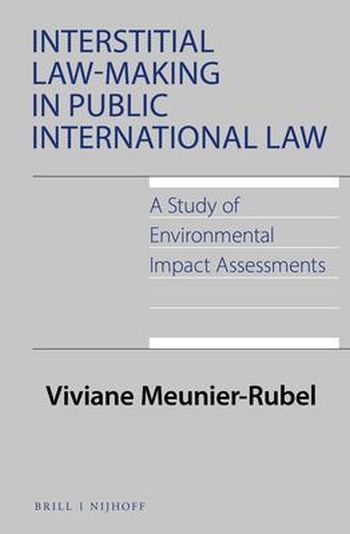
Environmental Impact Assessment (EIA) requirements are quasi-universal. Praised as the core of the international legal response to ensure environmental protection, this procedure is an information tool for better public decision-making, which can contribute to empowering individuals and civic groups. Based on the historical background of the relevant norms and on case studies, Interstitial Law-Making in International Law: A Study of Environmental Impact Assessments verifies whether the role of procedure in secreting substantive law may be fulfilled in the distinctive legal system of public international law, while appraising how EIA requirements have been conceived and implemented as regards encouraging all international actors to behave in an environmentally conscious way, in a world of heterogeneous political regimes.